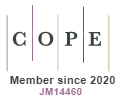Transition to emergency remote teaching in higher education in Portugal – an exploratory study
DOI:
https://doi.org/10.5585/dialogia.n36.18545Keywords:
Covid-19, Emergency remote teaching, Higher educationAbstract
The Covid-19 pandemic had profound impacts on higher education. In Portugal, it affected around 350000 students, involved in an emergency transition to remote teaching practices. We consider it essential to identify practices adopted by higher education institutions in this context, as well as how they have been readjusted over time, and how the process was perceived, both by teachers and students. To this end, an online questionnaire was applied to teachers and students of on-campus higher education between April 22 and May 12, 2020. The results point to the adoption of a plurality of teaching strategies, with emphasis on synchronous practices, which have been revised throughout the process. Despite sensitive aspects such as evaluation, student involvement, practical activities or time management, potential and limitations to the process are recognized.
Downloads
References
AERA. Code of ethics, Educational Researcher, v. 40, n. 3, p 145-156, 2011.
BATES, Tony. Re-defining online learning and distance education in 2020. Online Learning and Distance Education Resources, June 30th 2020. Disponível em: https://www.tonybates.ca/2008/07/07/what-is-distance-education/. Acesso em: 28 set. 2020.
BOZCURT, Aras; SHARMA, Ramesh C. Emergency remote teaching in a time of global crisis due to CoronaVirus pandemic. Asian Journal of Distance Education, v. 14, n. 1, p. i-vi, 2020. Disonível em: https://www.researchgate.net/publication/341043562_Emergency_remote_teaching_in_a_time_of_global_crisis_due_to_CoronaVirus_pandemic . Acesso em: 28 set. 2020.
COPE, Bill; KALANTZIS, Mary. e-Learning ecologies: Principles for new learning and assessment. Routledge, 2017.
DANIEL, Teresa A. Application of a Systems Approach to Distance Education. Proceedings of the 50th Annual Meeting of the ISSS - 2006, Sonoma, CA, USA, 23 Jun. 2006. Disponível em: https://journals.isss.org/index.php/proceedings50th/article/view/274 . Acesso em: 28 set. 2020.
HEWITT, Rachel. Students’ views on the impact of Coronavirus on their higher education experience. HEPI Policy Note, 24, Oxford:
HEPI, 2020. Disponível em: https://www.hepi.ac.uk/wp-content/uploads/2020/06/HEPI-Policy-Note-24_Coronavirus_FINAL.pdf
HODGES, Charles; MOORE, Stephanie; LOCKEE, Barb; TRUST, Torrey; BOND, Aaron. The difference between emergency remote teaching and online learning. Educause review, 27th March 2020. Disponível em: https://er.educause.edu/articles/2020/3/the-difference-between-emergency-remote-teaching-and-online-learning . Acesso em: 28 set. 2020.
MOORE, Michael; KEARSLEY, Greg. Distance Education: A systems view of online learning. Belmont, CA: Thomson/Wadsworth, 2012.
MOORE, Michael G.; ANDERSON, William G. Handbook of distance education. Mahwah, NJ: Lawrence Erlbaum Associates, 2003.
PETERS, Otto. Distance education and industrial production: a comparative interpretation in outline. In: SEWART, David;
KEEGAN, Desmond; HOLMEBERG, Börje (Eds.). Distance Education. International perspectives. London: Croom Helm, 1983. p. 95-113. Disponível em: http://www.c3l.uni-oldenburg.de/cde/found/peters67.htm Acesso em: 29 set. 2020.
SEABRA, Filipa; AIRES, Luísa; Teixeira, António. Transição de emergência para o online em universidades portuguesas no contexto de COVID-19: estudo exploratório. 8th International Congress of Educational Sciences and Development, Pontevedra, Espanha, 28-30 de outubro de 2020.
TAYLOR, James C. Fifth generation distance education. Higher education series, Camberra, report n. 40, p. 1-8, june 2001. Disponível em http://www.c3l.uni-oldenburg.de/cde/media/readings/taylor01.pdf Acesso em: 29 set. 2020.
Downloads
Published
How to Cite
Issue
Section
License
Copyright (c) 2020 Dialogia

This work is licensed under a Creative Commons Attribution-NonCommercial-ShareAlike 4.0 International License.
- Abstract 1213
- PDF (Português (Brasil)) 1276







